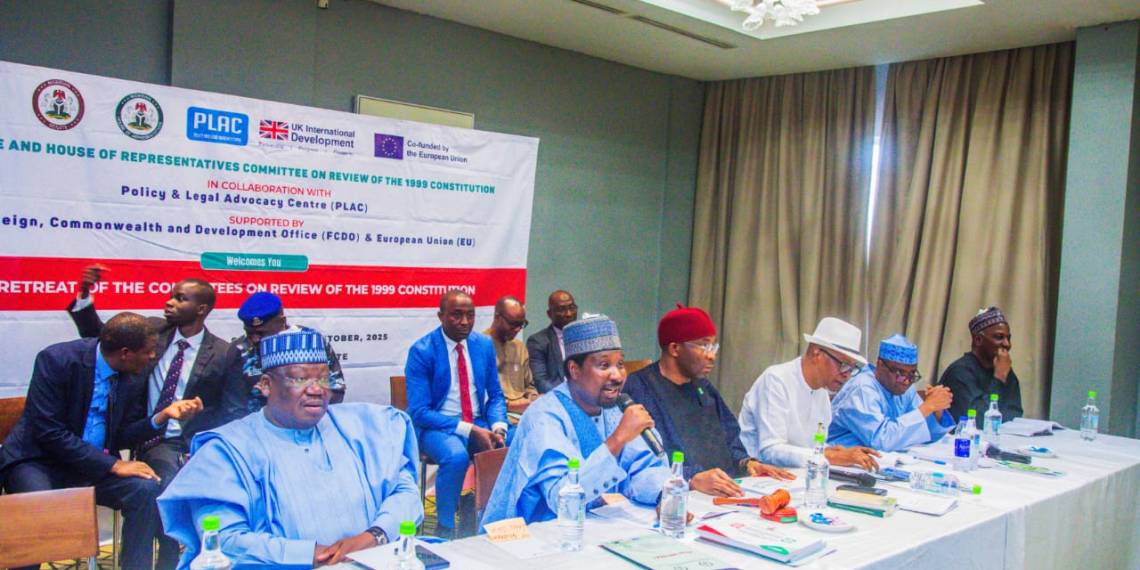As part of its resolution in the ongoing review of the country’s constitution, the National Assembly Joint Committee on Constitution Review has approved the establishment of six new states, one in each of Nigeria’s geopolitical zones.
In the event that it is approved, the country’s states will increase from 36 to 42, with eight in the North-West, seven in the North-East, North-Central, South-West, and South-South, and six in the South-east.
On Friday and Saturday, at a two-day retreat in Lagos, the decision was made.
The committee also decided to form a subcommittee to decide which particular regions will be used to build the six new states. The subcommittee was chaired by Tahir Monguno (APC, Borno North), the Senate’s Chief Whip.
The retreat examined 278 petitions for the establishment of new local government units, two border adjustment requests, and 55 suggestions for new states from different interest groups around the nation.
According to PREMIUM TIMES, in order to increase the number of states in the region to six, the committee decided to establish a state for the southeast. At present, it consists of five states: Imo, Abia, Anambra, Ebonyi, and Enugu.
When parliamentarians meet again for plenary, the resolutions from the committee are anticipated to be presented by the chairs of both houses of the National Assembly, Deputy Speaker Ben Kalu and Deputy Senate President Barau Jibrin.
Members of the Committee of the Whole will then debate the ideas and cast votes for or against them.
The constitutional process for establishing new states
Section 8 of the Nigerian constitution describes the steps and prerequisites for establishing additional states.
It requires that a written request signed by at least two-thirds of the elected officials from the region seeking the new state—including senators, members of the House of officials, and members of the State House of Assembly—must be the first step in the process.
In a referendum, the plan must then be accepted by at least two-thirds of the local population who are calling for the new state, as per Section 8(1)(b).
The results of the referendum must then be approved by a simple majority of all federation states, backed by a simple majority of State House of Assembly members, as required by Section 8(1)(c). This implies that at least 19 states and at least 51% of state legislators nationwide must support the referendum.
In conclusion, Section 8(1)(d) mandates that a two-thirds majority of members in each National Assembly chamber must adopt the motion.
The resolutions are delivered to the president for final assent after these procedures are finished.
potential difficulties
Prior to the year’s conclusion, the joint committee had promised to wrap up the constitution review process and send its final recommendations to the state Houses of Assembly.
The 1999 Constitution has been widely criticized for being out of date given Nigeria’s political, social, and technological advancements since the country’s restoration to democracy in 1999. State legislatures have rejected numerous suggested amendments to the document, despite the National Assembly amending it five times.
Since substantial monies were allotted to each phase of the exercise, the review’s cost has also drawn public attention throughout the years.
The ratification of the six new states is anticipated to spark new political competition among governors and powerful political leaders who want the new states to be situated in their areas.
A bill that would create Ibadan State, for example, has passed second reading in the House of Representatives in the South-West, and another that would create Ijebu State is also being considered.
The formation of Anioma State, which is presently a part of Delta State, is also being proposed via a bill. Ned Nwoko is the bill’s sponsor (APC, Delta North). Given that it is mostly an Igbo-speaking region, there have been calls for Anioma to be recognized as the sixth state in the South-east geopolitical zone instead of recognizing any of the other current proposals for state establishment in the region.


